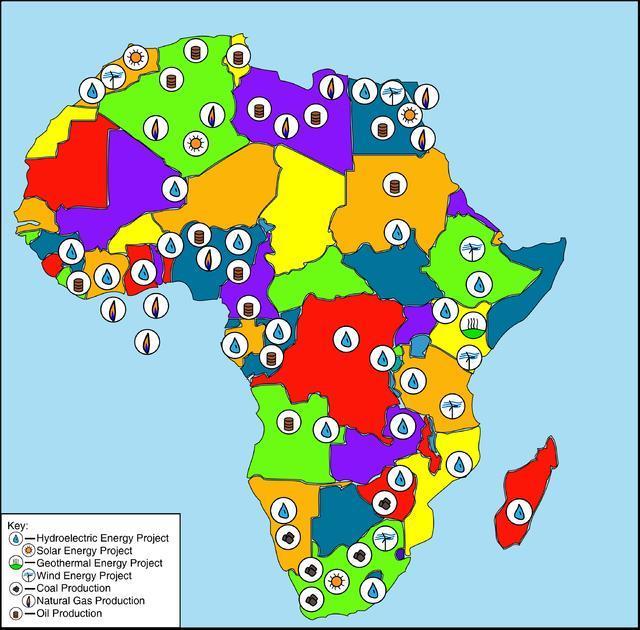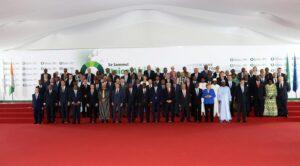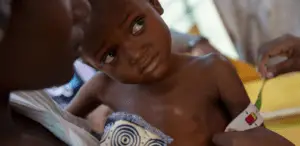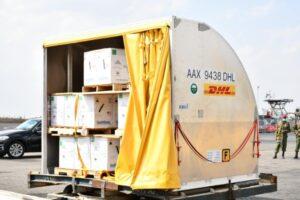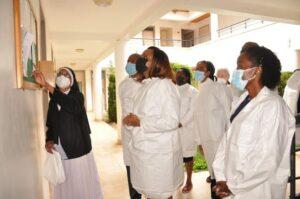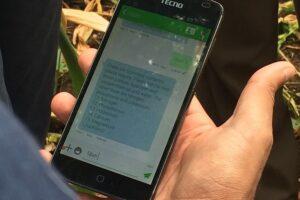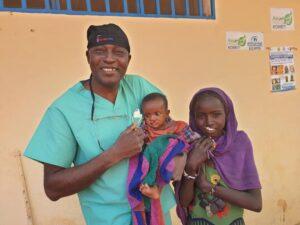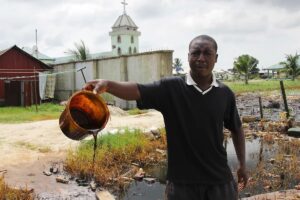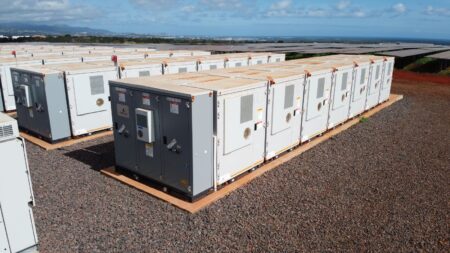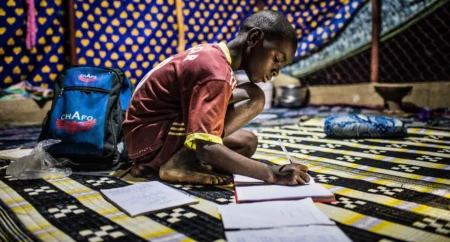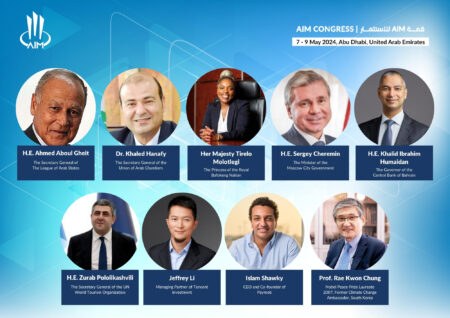- Wärtsilä Energy offers tips on how Africa can navigate energy transition and grid reliability
- Powering Africa: Africa’s Path to Universal Electricity Access
- Global investment trends at AIM Congress 2024: a spotlight on the keynote speakers
- South Africa’s deepening investment ties in South Sudan oil industry
- Agribusiness could drive Africa’s economic prosperity
- Dawood Al Shezawi: Why AIM Congress 2024 is the epicenter of global economic and cultural dialogues
- d.light’s 600,000 cookstoves project verified as top source of quality carbon credits
- Artificial intelligence (AI) could create a turning point for financial inclusion in Africa
Health
As Africa’s role in the global economy continues to garner prominence, it’s imperative for the continent to seal the gaping hole in its power supply.
Lack of universal power access remains a major roadblock that has retrogressed industrialization and socio-economic development. Statistics from the World Bank indicate that Africa remains the least electrified region in the world, with 568 million people lacking access to electricity.
The Bretton Woods institution, further notes that the Sub-Saharan Africa’s share of the global population without electricity, jumped to 77 per cent in 2020 from 71 per cent in 2018, whilst most regions saw declines in their share of access deficits. It has become a Hobson’s choice for African governments to prioritize the power sector, which is the epicenter of industrialization, working towards Goal 7 of the UN SDGs; which advocates for universal access to affordable, reliable and modern electricity services.
Currently, Africa’s power is …
Even though the EU delegates admitted that; “We recognised, everybody, does, that there is an unbearable vaccination gap that has to be closed … between Africa and Europe,” the diplomats still said no vaccine patent waiver for Africa.
Also, despite scientists warning of the possibility of new Covid variants developing in Africa and the fact that just 5 per cent of Africa has been inoculated, the EU still said no to easing vaccine access to Africa.
The African Union (AU) had expected some sought of EU backing for targeted and time-limited Trips Waiver on vaccines. Trips stand for: Trade-Related Aspects of Intellectual-Property Rights and a waiver would have made it affordable for Africa to produce the vaccines in Africa.…
According to SOS Children’s Villages, 3.2 million children under the age of five die every year because of hunger and drought in Africa. In other words, more than half the children who die of hunger-related causes come from the continent.
In the same breath, he said that there has also been inconsistency in the flow of funds to UNICEF to support humanitarian response.
UNICEF said more than 255,000 children received treatment for severe wasting in Somalia last year. On Tuesday, January 2022, the International Organization for Migration (IOM) said the widespread drought in the Horn of Africa has severely affected the country the most, forcing the government to declare a state of emergency in November.…
By Dr. Olajide Ademola (UNFPA) and Dr. Benjamin Djoudalbaye (Africa CDC)
The COVID -19 pandemic has drastically challenged and strained health systems worldwide. All components of the health delivery architecture – from human resources to physical infrastructure – have been severely tested as morbidity and mortality caseloads, unfortunately, gallop. Globally, over four million people have been infected, with about 282 244 lives lost and over one million recoveries between December 2019 and May 2020. As the pandemic continues to evolve and the numbers trickle in, we are not just learning about the fatalities and survival, but also about redefining our healthcare systems.
Western societies are experiencing the heaviest of the unprecedented effects yet they host advanced health care amenities and have established economies. A report released early March called on leaders in Africa to prepare for worse but on the contrary, the continent appears to be gradually reaping benefits of …
UjuziKilimo, a data-driven agricultural technology company that is driving change in the way farmers access information and manage their food productivity is wary of the effects of Covid-19 to local agricultural production. In an era where food production and supply chains are greatly disrupted by the pandemic, the company is unveiling new structures for helping small agriculture-based businesses in Kenya.
These local small-scale farmers are set to enjoy Kshs18million worth of technical support as part of a social-economic recovery initiative by the agricultural technology solutions provider. UjuziKilimo has received support from Wadson Ventures, an Africa-focused early-stage venture capital house to facilitate this intervention.
The partnership is moulded in form of a COVID-19 relief partnership agreement. UjuziKilimo Chief Executive officer Brian Bosire says the company will channel the support not only towards COVID-19 but also locust invasion related interventions geared at facilitating swifter agricultural production recovery.
Bosire is also expressing regret …
Maria Mukamana, 35, lives in Rugenge village Rusororo sector which is surrounded by miles of swamps and marshlands where she wakes up every morning to do a day’s labour in the rice fields.
She earns less than $1 (Rwf700) a day and spends it all on food for her children with not a penny to save by the end of month.
As a family living in the wetlands — a mosquito breeding ground —at least once in two months one of her family members gets infected with malaria.
The single mother of two children is among the 10million Rwandans who are covered by the Community Based Health Insurance (CBHI) commonly known in Rwanda as mutuelle de sante.
Under the CBHI program Maria can get 90% health care insurance which covers treatment and medication in case she and her children fall sick but this doe snot cover her needs like food …
If there is anything that the spread of the COVID-19 (Coronavirus) pandemic across the world leading to partial or total lockdown in several countries has taught us, is that we need to be prepared financially for any eventualities today more than ever.
Barely two months ago, people across the world were planning and budgeting for the New Year without the realization that soon many would be losing employment or experiencing a cut of their normal income.
The global pandemic has brought the world to a standstill. This is an unprecedented time of trying to manage our lives behind closed doors, reaching out to those who need our help, and somehow remain afloat with the minimal income we have left.
Although the pandemic is just in its early stages in East Africa and most African countries, we should be learning from other countries like China and Italy. If we adapt to …
By Sachen Gudka
Coronavirus is our wake-up call. No one could have predicted its disastrous impact. But that is the nature of disasters; most are sudden, unpredictable and leave in their wake unimaginable misery and loss. We have been quite rudely awakened to the essentiality of disaster resilience.
Anything that we do from now on, any buildings, any plans and any developments as a country have to be done through a disaster resilience lens. Any policies developed and implemented should be able to answer the questions: ‘Will they help us get through the next disaster shock with minimal loss? Will they help us bounce back fast enough and set us on our feet to recover quickly? And more importantly, if we are ever to be left with no options but to close our borders, can we sustain ourselves?’
At the moment, efforts to reduce exposure and spread of the virus …
Dr. Esther Njoroge-Muriithi is the Vice President and Regional Director for Smile Train Africa.
When we speak of inclusivity in healthcare, cleft lip and palate surgery is often considered a footnote in the priorities given to healthcare financing. Many children with clefts around the world live in isolation, making it difficult to make friends and go to school, but more importantly, have difficulty eating, breathing, and speaking. As we seek to achieve Universal Health Coverage, the long-term benefit of treating a single cleft at an early stage can bring in as much as $50,000 to the economy. This economic benefit therefore deserves to be considered a priority as governments address pediatric surgical care.
The Fourth meeting of the Global Initiative for Children’s Surgery (GICS IV) which took place in Johannesburg from 17th-18th January 2019, brought together providers and implementers of surgical services for children, along with health, …





